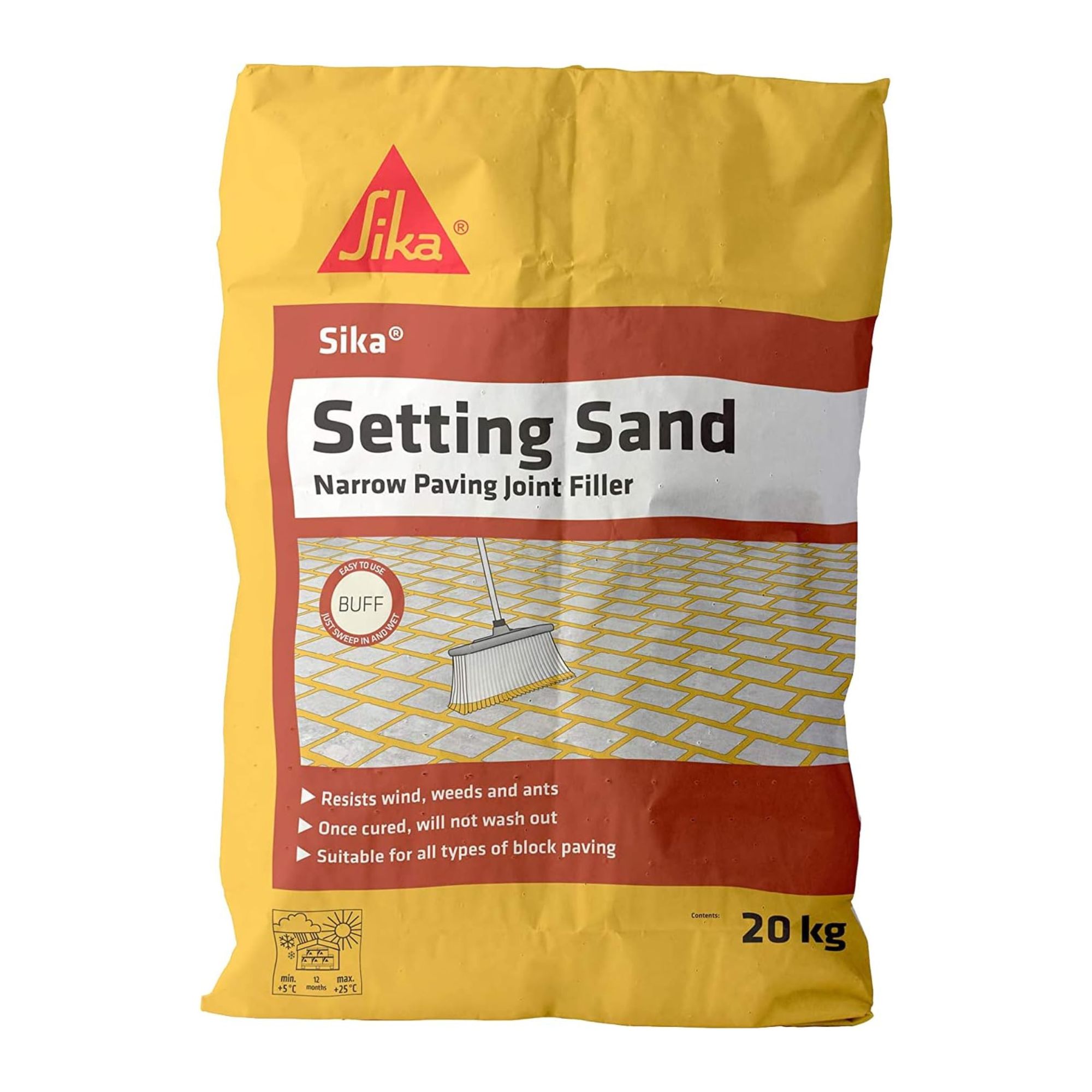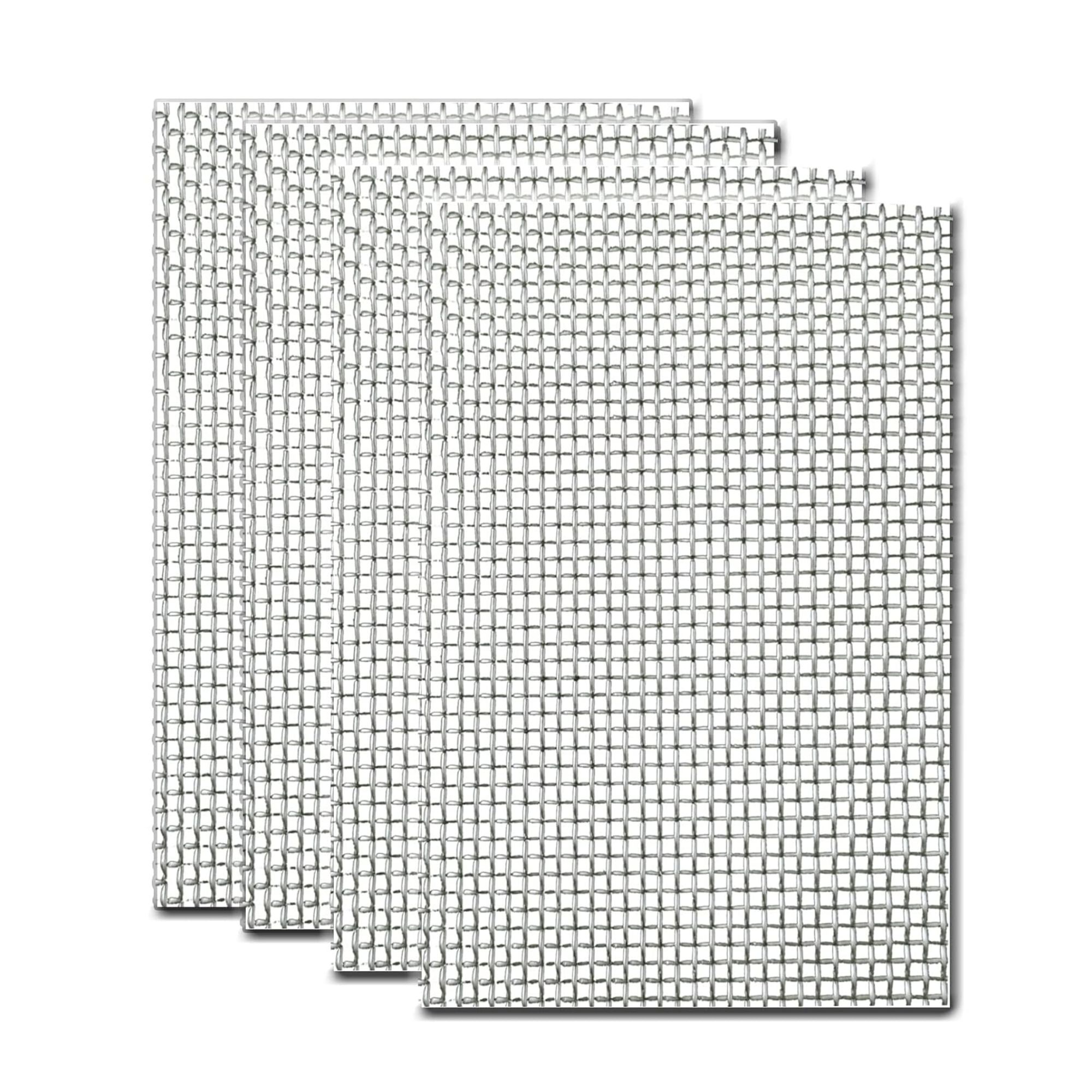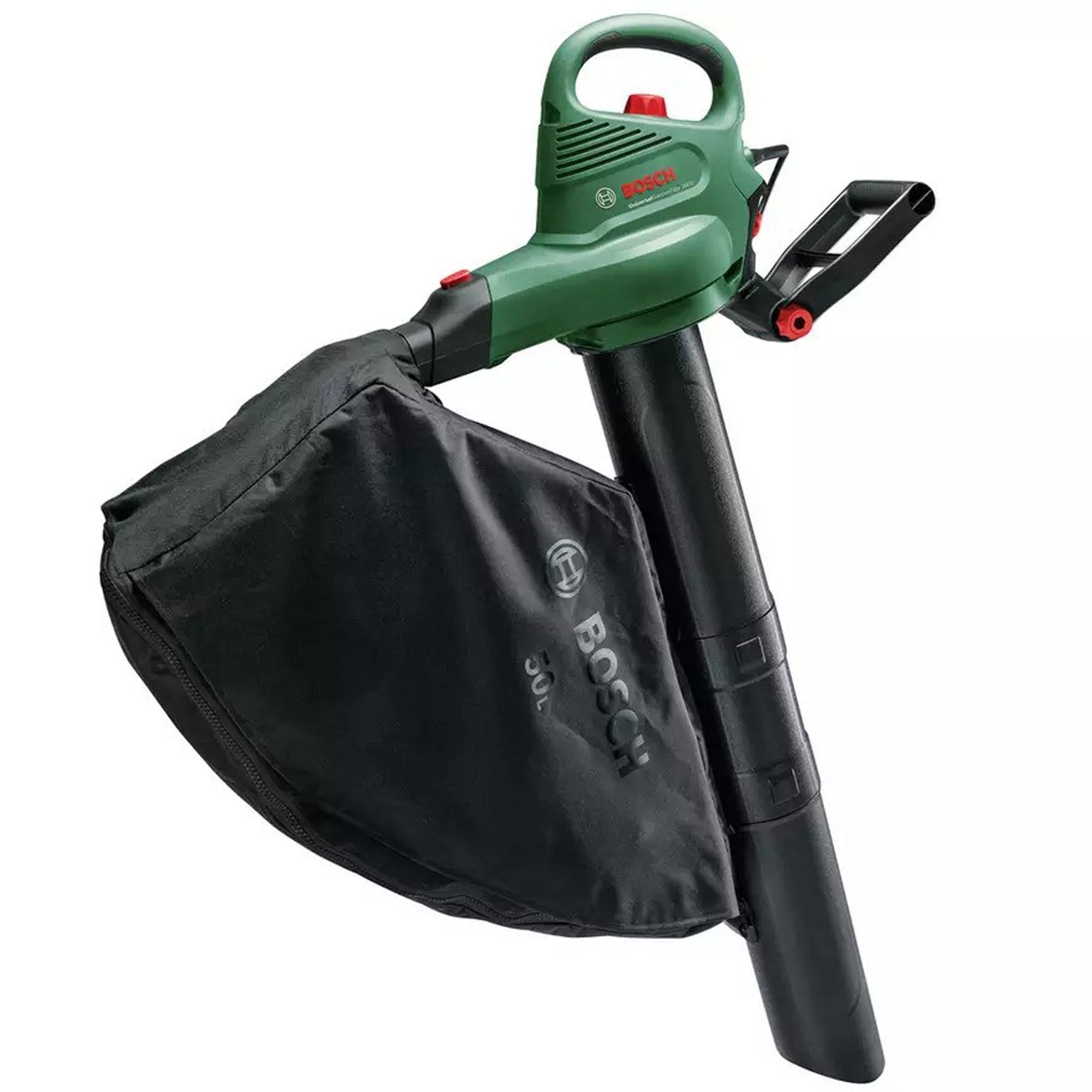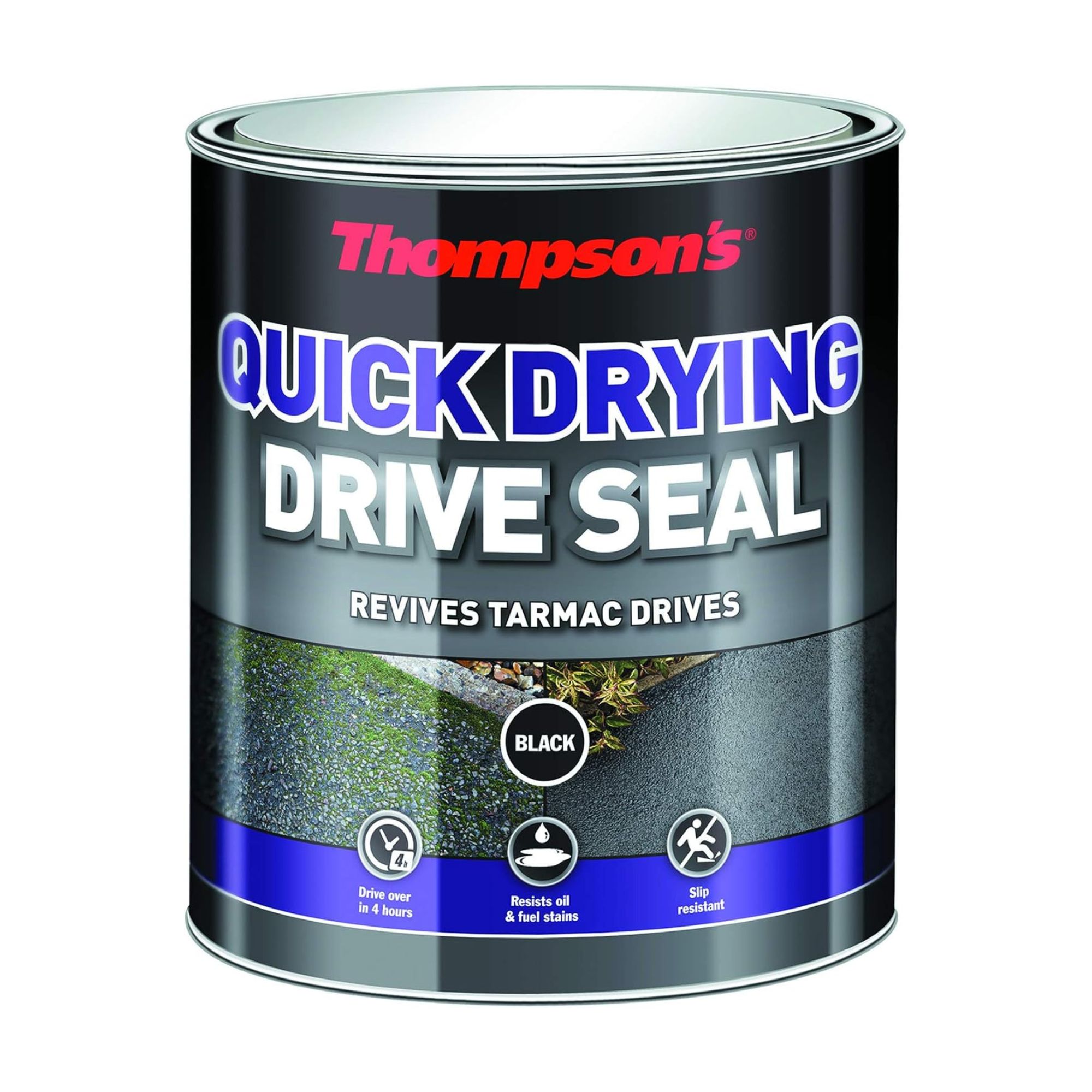How to prepare your driveway for winter - 5 essential steps to keep your family and car safe over the next few months
Weather-proof your driveway without the hassle


Figuring out how to prepare your driveway for winter probably isn’t how you’d want to spend your weekend, but it can make a huge difference during the colder months. By ticking this job off your to-do list now, you can ensure that your family and car remain safe and sound this winter.
Whatever driveway idea you opt for, you'll need to give it the TLC it deserves to protect it from the elements. After all, preparing your driveway for winter isn’t the same as preparing your patio for winter. While you can probably avoid using your patio if it looks like an ice rink, you can’t avoid using your driveway when you and your family need to leave the house.
That’s why we’ve spoken to the experts to help you understand how to prepare your driveway for winter. With these tips in tow, you can prevent damage, keep your driveway in one piece, and ensure it lasts for as long as possible.
1. Give it one last clean

Undoubtedly, your driveway will be battered by dirty rain, wind, and maybe even snow over the next few months. So, you may find it odd to find this first step on the list - but giving your driveway one last clean before winter is an essential task.
There are two ways that you can do this. You might already know how to clean a driveway with a pressure washer, but if you don't have the right tools, we can help you choose the right one for your home - after all, we've tested lots of models in our quest to find the best pressure washers.
For a more hands-on approach, you can use one of the best patio cleaners for this task. Martin Beaumont from Monty Miracle suggests, ‘Use a wire brush to mix it all over the surface - no need for scrubbing this time - then leave for at least ten minutes. Using your hose, just wash it away: all those nasty marks will be gone.’
But cleaning up your driveway isn’t just about the cleanliness of the stones or cleaning the gravel. Steven Walley, patio and paving expert from London Stone also suggests that you take this time to get rid of weeds from your driveway.
Sign up to our newsletter for style inspiration, real homes, project and garden advice and shopping know-how
He says, ‘A regular maintenance schedule will prevent weeds from establishing, so sweep your drive regularly and jet wash 2-3 times per year - especially before colder months - to stay on top of it.’
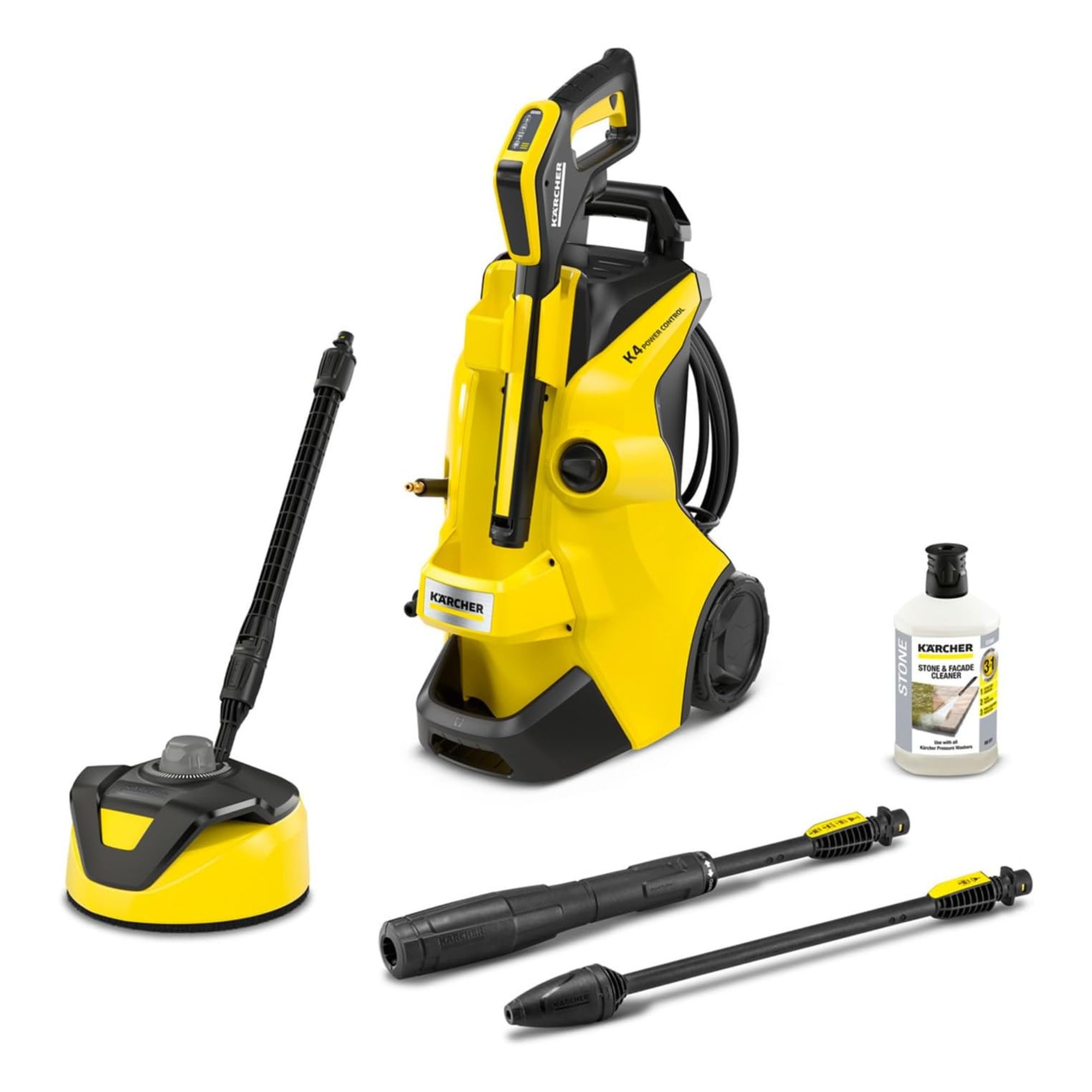
Crowned the 'best overall' pressure washer in our guide, this gadget has everything you could need to clean and prepare your driveway for winter.
2. Check for (and repair) any damage

After you’ve prepared your decking or your shed for winter, you tend to leave it alone until spring - but that’s not the case with your driveway. Most people will still be using their driveways daily throughout the winter, so they need to be in top form.
To prepare your driveway for winter, you need to check for and repair any damage. If not, the cold weather may make it worse and cause damage to your car or pose a hazard to your family.
Martin says, ‘If you have a brick or paved driveway, clean out between the bricks and slabs to remove the organic growth – moss and algae. If this is left over winter, it will freeze and expand, causing larger gaps and cracks between the bricks.’
He adds, ‘Tarmac driveways may have fewer gaps, but they are still prone to the weather, and over time, they might sink slightly in the areas where car wheels rest. Pools of water can freeze and expand and, again, cause damage to the surface. Check for cracks and dips and get them filled to ensure the ground is level.’
3. Tackle any drainage issues

British winters can be challenging, and sometimes, just stepping out of your front door can be dangerous. This is especially true if pools of water have frozen during the night. With this in mind, you should always tackle any drainage issues while preparing your driveway for winter.
Just as you should improve lawn drainage, you should also seek to improve your driveway drainage before the cold and wet temperatures really set in. In some cases, this may mean that you also need to replace your gutters or simply clean your gutters.
Martin also urges homeowners to focus on the drains in and around their driveway. He says, ‘Remove any sludge and leaves from your drains so that they are efficient - and if you don’t have one, purchase a drain cover to prevent future blockages and potential water build-up.’
Of course, you might not necessarily have to do this, as drainage issues vary depending on the type of driveway you have.
As John Pearce, Director at Oltco, explains, ‘Resin-bound surfaces are fully porous, meaning water drains away naturally, preventing puddling and ice formation and the flooding that often occurs on other patio materials. However, it’s a good idea to make sure your surrounding drainage system is working efficiently to handle heavy rain and avoid any risk of flooding.’
4. Remove leaves as soon as possible

While you may think that leaving a carpet of autumnal colours on your driveway will beautify your outdoor space, you should remove them as soon as possible.
To prepare your driveway for winter, it's important to remove the leaves as soon as you can. This is mainly for safety reasons, as Martin says, ‘If they get trodden into place, they’ll become really slippery, particularly if there is really cold weather and the leaves get frosty, then thaw, then get frosty again.’
However, you should also remove fallen leaves from your driveway quickly, especially if your drive features certain materials, to protect its long-term appearance.
‘Natural stone driveways and other paved areas require a little more upkeep in the winter due to the fact that fallen autumn leaves can actually stain the paving stones,’ adds Steve.
How you remove these leaves is up to you, but we’d always suggest using one of the best leaf blowers - ideally, one that vacuums them up so you don’t just blow them elsewhere.
5. Seal it from the elements

Sealing is a godsend during the winter months. From sealing the best garden furniture to sealing your patio, this process can protect outdoor areas from damage - especially if you regularly use de-icers to keep your family safe.
Jamie Jones, outdoor living expert from Open Space Concepts, explains, ‘Applying sealant is an essential piece of maintenance that should be done to your driveway every winter. The sealant can help fill any small cracks whilst also protecting your driveway from some of the harsh chemicals that you get in de-icers.’
Sealing your driveway is pretty easy to do, too. All you need to do is grab your sealant of choice and apply it using a paint roller. Just make sure to measure your space to understand how much sealant you need, and always ensure your driveway is clean before applying. Otherwise, it won’t be as effective.
FAQs
What is the best driveway material for winter?
While tarmac driveways have their downsides during the summer months, they thrive during the winter. In fact, their ability to absorb heat (which proves to be a problem during the hotter periods of the year) can work in your favour during the colder months. This is because they can absorb heat and then melt the snow and frost on your driveway.
However, tarmac does also have its downside if not cared for properly. Just like roads, they can suffer from potholes and damage. Because of this, you need to keep on top of its condition and make any necessary repairs before winter comes.
How do I keep my driveway from freezing?
Sealing your driveway before winter is one of the best ways to stop it from freezing. This sealant will form a protective barrier and help it cope with the cold.
Alongside this, you can also use chemical and natural de-icers. While you can buy chemical de-icers from supermarkets, DIY shops, and even petrol stations, a natural alternative is to use salt or sand to stop your driveway from freezing.
Keeping on top of cleaning is also essential. To prevent freezing you should remove leaves that can create puddles of water and ensure your nearby drains and gutters are clear.
Now you know how to prepare a driveway for winter, it’s time to get cracking!

Lauren Bradbury has been the Content Editor for the House Manual section since January 2025 but worked with the team as a freelancer for a year and a half before that. She graduated with a Bachelor’s degree in English and Creative Writing from the University of Chichester in 2016. Then, she dipped her toe into the world of content writing, primarily focusing on home content. After years of agency work, she decided to take the plunge and become a full-time freelancer for online publications, including Real Homes and Ideal Home, before taking on this permanent role. Now, she spends her days searching for the best decluttering and cleaning hacks and creating handy how-to guides for homeowners and renters alike, as well as testing vacuums as part of her role as the Ideal Home Certified Expert in Training on Vacuums, having spent over 110 hours testing different vacuum models to date!
